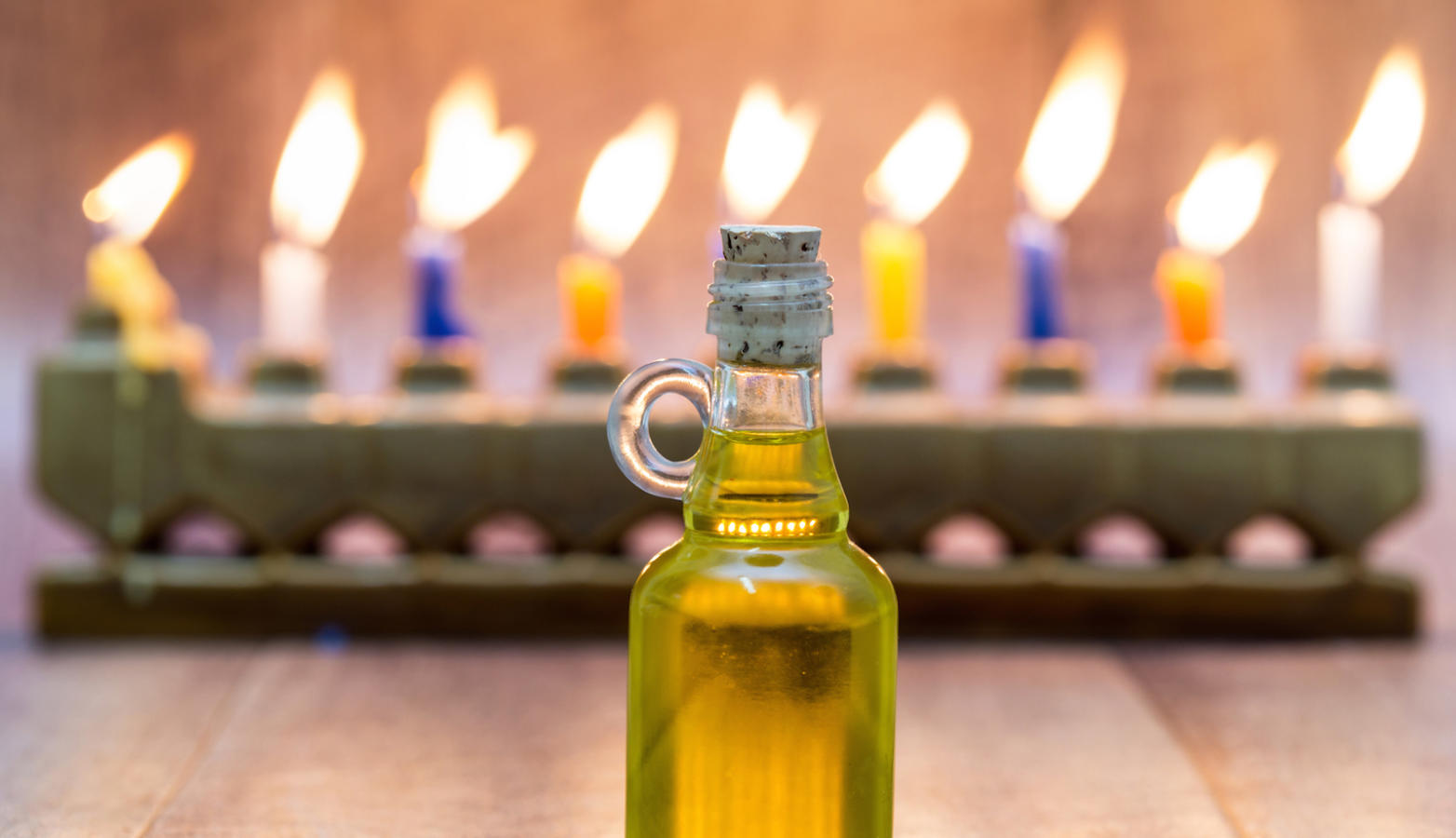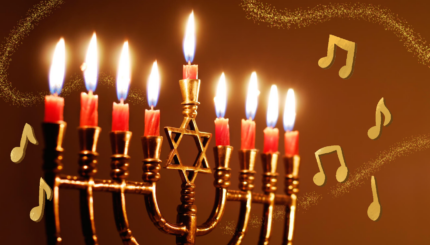Unlike I and II Maccabees, the barely touches on the armed struggle, never mentions the word Maccabee, and of the leading rebels, names only Mattathias. The Mishnah (on which Talmud commentary is based) references only obliquely, referring to a “ner Hanukkah” when talking about damages, and the few relevant passages in the commentaries begin “What is Hanukkah?” (Mai Hanukkah?) as though its significance had been forgotten. The response redirected the holiday.
The rabbis said that when they reclaimed the Temple, the Hasmoneans found a single cruse of pure oil still bearing the unbroken seal of the high priest. Although only enough to last one day, it miraculously burned eight days, the amount of time needed to secure a new supply of oil to keep the menorah lit. In the following year, the holiday, to be observed with songs and praises, was ordained, a distinction that presented Hanukkah as a rabbinic, and not Hasmonean, proclamation.
Excerpted from Celebrate! The Complete Jewish Holiday Handbook. Reprinted with permission of the publisher. Copyright 1994 by Jason Aronson Inc.
Explore Hanukkah’s history, global traditions, food and more with My Jewish Learning’s “All About Hanukkah” email series. Sign up to take a journey through Hanukkah and go deeper into the Festival of Lights.

Help us keep Jewish knowledge accessible to millions of people around the world.
Your donation to My Jewish Learning fuels endless journeys of Jewish discovery. With your help, My Jewish Learning can continue to provide nonstop opportunities for learning, connection and growth.



